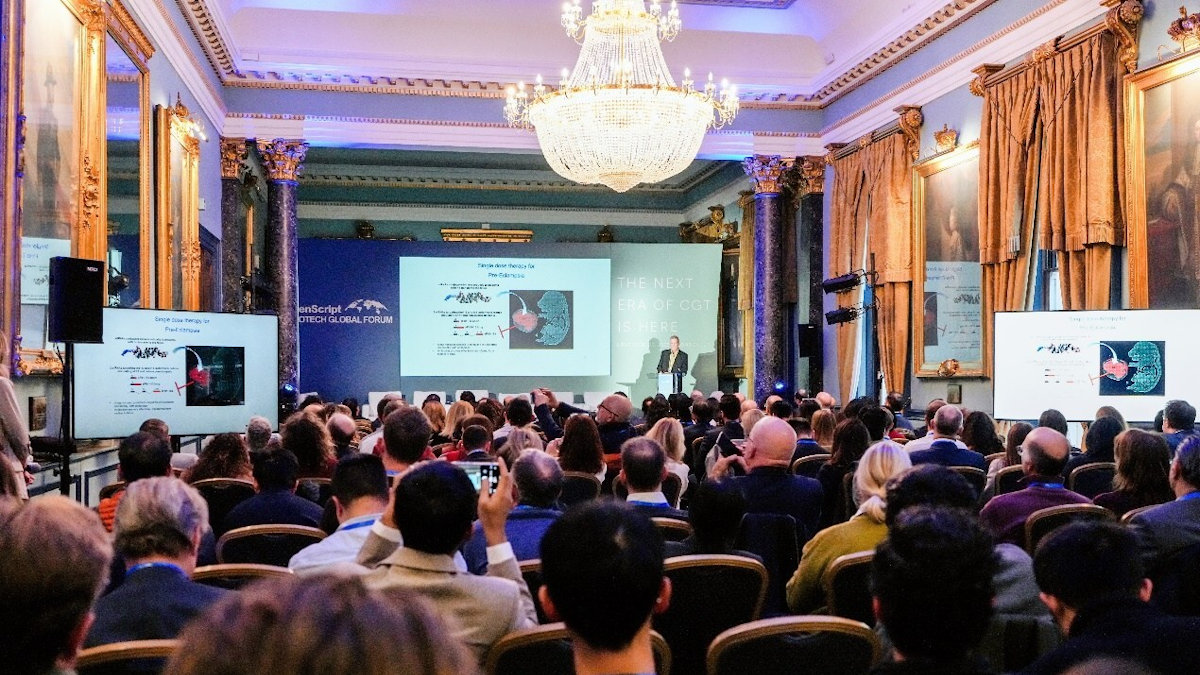GenScript Biotech Corporation has hosted the GenScript Biotech Global Forum London 2025 in the UK.
It is the forum’s second edition in Europe and the eighth consecutive global industry forum organised by GenScript since its debut at the 2020 J.P. Morgan Healthcare Conference in San Francisco, highlighting the Forum’s continued role in supporting industry exchange and advancing the development of the cell and gene therapy (CGT) sector.
The theme “THE NEXT ERA OF CGT IS HERE” attracted nearly 400 participants from around the world, including global scientists, business leaders, and investors such as Nobel Laureate Craig Mello, who engaged in in-depth discussions on cutting-edge CGT topics, including the transition from ex vivo to in vivo therapies, strategies to overcome CMC challenges in manufacturing, and capital and collaboration trends.
This year’s forum featured keynote speeches by Mello, Carl June, director of the University of Pennsylvania Center for Cellular Immunotherapy, and Miguel Forte, president and board of directors chair of the International Society for Cell & Gene Therapy (ISCT). They shared the latest advancements and practical insights in CGT from scientific, industrial, and clinical perspectives, offering strategic guidance for the future of the field.
Mello, who received the 2006 Nobel Prize in Physiology or Medicine for discovering RNA interference (RNAi), highlighted RNAi’s high programmability and therapeutic potential. New oligonucleotides can be quickly generated at low cost and precisely target mature mRNAs, making almost any disease target potentially druggable. He illustrated this with a siRNA therapy for preeclampsia, which stabilised maternal blood pressure with a single subcutaneous injection.
Mello also noted that RNAi can complement cell therapies by modulating key genes to enhance safety and efficacy. Looking ahead, he predicted that RNAi will become a major therapeutic approach, standing alongside CGT in tackling a wide range of diseases.
June, the “father of CAR-T,” gave a comprehensive review of the CAR-T therapy’s applications in blood cancers and ongoing research in treating solid tumours.
He noted that second-generation CAR-T therapies have demonstrated durable responses in blood cancers, and new insights into their persistence are helping guide next-generation product design.
June also highlighted his team’s progress on armoured CAR-T programmes such as IL-18 and IL-9 constructs, which are showing encouraging activity in refractory lymphoma and in a pancreatic cancer mouse model. He noted that improving CAR-T infiltration and durability in solid tumours remains a core challenge, while combination strategies with oncolytic viruses are beginning to show promising signals.
Forte, whose influence spans academia, industry, and regulatory domains, underscored that delivering real benefits to patients requires not only scientific innovation, but also an adequate business model, clinical convenience, and accurate product launch.
Forte pointed out that every therapy must be managed with scientific rigour to appropriately address safety risks. He called on the industry to stay grounded in reality and strike the right balance between enthusiasm and rationality, so that CGT can move from being merely possible to genuinely accessible.
Four deep-dive roundtable sessions were hosted, covering topics on both technological innovation and commercial strategy.
The next GenScript Biotech Global Forum is scheduled to take place during the 2026 JPM Healthcare Conference week.


